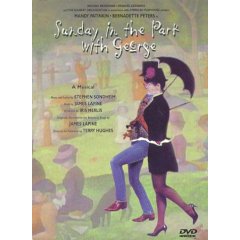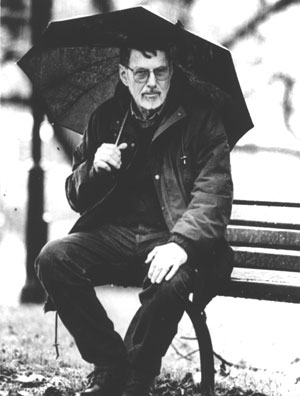Sherwood in flames!
Well, not quite. But “Higher Ground,” the bully play by a middle school teacher in Sherwood,is managing to ignite passions. Coercion on the playground and coercion by a bureaucracy are a lot alike, as Bob points out below, and maybe we are dreaming if we think the adults should know better. It’s a little bit sick, a little bit sad, and a whole lot aggravating. But the show does go on! And that’s brilliant.
We might stop to talk a little about Eliot Spitzer if there was one iota of the story that hadn’t been been chewed over by multiple mouths. There’s an unfortunate image for you… But $80,000? We will say “The Wire” ended spectacularly, and when you hear members of the Fourth Estate complain about the way David Simon depicted the Baltimore Sun, they protest too much. Good stuff, and close enough to “real” to be recognizable, at least from here.
Taking a little darshan with Stephen Sondheim was a good antidote to an unruly week. Anything that makes you want to see lots more theater, that has to be a good thing, right? Apparently, a certain principal in Sherwood disagrees.
What’s next? I have no idea. We have entered deep improv mode here at Art Scatter. But something big is about to happen. I can just feel it.
 The Stephen Sondheim-Frank Rich question and answer session, staged by Literary Arts at the Schnitz Tuesday, was about as delightful as it possibly could have been.
The Stephen Sondheim-Frank Rich question and answer session, staged by Literary Arts at the Schnitz Tuesday, was about as delightful as it possibly could have been. 
 That’s Joe Sacco, to the right, looking out of the window in a restaurant in the old part of Sarajevo. As usual he is passive — listening to the stories that other people tell him, observing life around him and presumably taking notes, though in this frame, he doesn’t seem to have a notebook with him. He looks a lot like a — journalist. Oh. There’s no drawing pad, either. And that’s what usually separates him from other journalists: He is recording conversations,
That’s Joe Sacco, to the right, looking out of the window in a restaurant in the old part of Sarajevo. As usual he is passive — listening to the stories that other people tell him, observing life around him and presumably taking notes, though in this frame, he doesn’t seem to have a notebook with him. He looks a lot like a — journalist. Oh. There’s no drawing pad, either. And that’s what usually separates him from other journalists: He is recording conversations, The rhyme is after
The rhyme is after